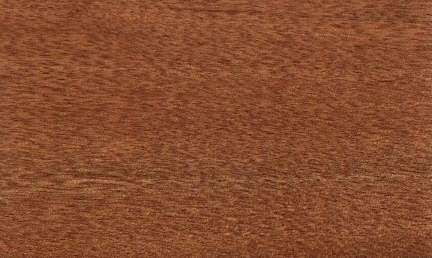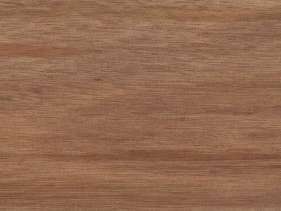 
Kurokai (Protium decandrum)
Family: Burseraceae
Common names: Alcanfor, Anime, Azucarito, Balsamo, Bois Encens, Breu Branco, Breu preto, Bamo, Carano, Chutra, Common kurokai, Copal, Copal caspi, Elimi, Fontole, Incense tree, Incienso, Kurokai, Latilla, Maruwa, Pom, Porokai, SucuriTacamahaco, Tingimoni, Tingimonie, Waruwai
Distributed in: Brazil, Columbia, French Guiana, Guyana, Honduras, Mexico, Panama, Peru, Suriname, Venezuela (Central America, Latin America)
Distribution overview: The species occurs throughout tropical America, and is most abundant in the Amazon basin. It is frequent in the marsh forests of Guyana.
Common uses: Beams, Boat building: masts, Boxes and crates, Building construction, Building materials, Cabin construction, Cabinetmaking, Chairs, Chests, Concealed parts (Furniture), Concrete formwork, Construction, Core Stock, Decks, Decorative plywood, Decorative veneer, Desks, Dining-room furniture, Dowell pins, Dowells, Drawer sides, Factory construction, Figured veneer, Fine furniture, Floor lamps, Form work, Foundation posts, Framing, Furniture , Furniture components, Furniture squares or stock, Furniture, Hatracks, Heavy construction, Interior construction, Interior trim, Joinery, Joists, Kitchen cabinets, Light construction, Living-room suites, Millwork, Office furniture, Paneling, Particleboard, Plain veneer, Plywood, Veneer
Product sources: The ITTO reports that timber from this species is produced at a low rate. It is occasionally exported.
Environment profile: Status has not been officially assessed
Tree size: Trunk diameter is 150-200 cm
Colors: the heart isYellow, Yellow to golden-yellow to orangeand the sapwoodWhite to yellow, Yellow.The grain isStraight to shallowly interlocked, the textureUniformand the lusterSlightly lustrous
Natural durability: Susceptible to insect attack, Susceptible to marine borer attack
Odor: No specific smell or taste
LightInduced Color Change: Darker
Kiln Schedules: UK=C US=T3C2/T3C1 Fr=3
Kiln Drying Rate: Very slow
Drying Defects: Resin Exudation, Splitting
Ease of Drying: Slowly
Tree Identification: Bole/stem form is straight
Comments: General finishing qualities are rated as good Resin in bark is used for incense and medicinal purposes
Blunting Effect: Moderate
Boring: Requires strong hold to prevent chipping of exit holes
Carving: Fairly Difficult to Very Difficult
Cutting Resistance: Fairly Difficult to Very Difficult to saw
Gluing: Moderate gluing properties
Mortising: Interlocked grain effects mortising
Moulding: Requires support at tool exits to prevent breaking out
Movement in Service: Requires support at tool exits to prevent breaking out
Nailing: Pre-Boring Recommended, Very Good to Excellent
Planing: Very Good to Excellent
Resistance to Impregnation: Sapwood is modertely permeable
Resistance to Splitting: Poor
Response to hand tools: Wood free from interlocked responds well
Routing recessing: Routing interlocked grain requires special attention
Sanding: Material with interlocked grain requires care
Veneering qualities: Veneers easily, Veneers moderately easy
Steam bending: Poor to Very Poor Results
Screwing: Pre-boring recommended
; Turning: Very Good to Excellent Results
Polishing: Very Good to Excellent; Staining: Surface Preparation;
- Numerical data Metric
- Numerical data English
- Strength properties
- References
 |
 |
 |
 |
| Item |
Green |
Dry |
Metric |
| Specific Gravity |
0,49 |
|
|
| Density |
|
608 |
kg/m3 |
| Bending Strength |
795 |
1206 |
kg/cm2 |
| Crushing Strength |
402 |
641 |
kg/cm2 |
| Hardness |
|
493 |
kg |
| Impact Strength |
71 |
98 |
cm |
| Shearing Strength |
|
148 |
kg/cm2 |
| Stiffness |
116 |
136 |
1000 kg/cm2 |
| Tangential Shrinkage |
7 |
|
% |
| Radial Shrinkage |
4 |
|
% |
| Weight |
608 |
592 |
kg/m3 |
| Maximum Load |
0,7 |
1,05 |
cm-kg/cm3 |
| Toughness |
|
288 |
cm-kg |
| Static Bending |
|
|
kg/cm2 |
|
 |  |  |  | | Item | Green | Dry | English | | Bending Strength | 11314 | 17164 | psi | | Density | | 38 | lbs/ft3 | | Hardness | | 1087 | lbs | | Impact Strength | 28 | 39 | inches | | Maximum Crushing Strength | 5726 | 9128 | psi | | Shearing Strength | | 2115 | psi | | Stiffness | 1650 | 1939 | 1000 psi | | Toughness | | 250 | inch-lbs | | Work to Maximum Load | 10 | 15 | inch-lbs/in3 | | Specific Gravity | 0.49 | | | | Weight | 38 | 37 | lbs/ft3 | | Radial Shrinkage | 4 | | % | | Tangential Shrinkage | 7 | | % | | Volumetric Shrinkage | 11 | | % | |
Density (dry weight) = 38-45 lbs/cu. ft. 0
Density (dry weight) = 31-37 lbs/cu. ft. 1
Hardness (side grain) = soft
Bending strength (MOR) = medium
Shearing strength (parallel to grain) = medium
Max. crushing strength = high
Modulus of Elasticity (stiffness) = medium
Shrinkage, Radial = moderate
Density (dry weight) = 46-52 lbs/cu. ft.
Density (dry weight) = 23-30 lbs/cu. ft.
Bending strength (MOR) = very high
Bending strength (MOR) = high
Toughness-Hammer drop (Impact Strength) = medium
Toughness (total work) = low
Shrinkage, Tangential = moderate
Shrinkage, Tangential = fairly large
Shearing strength (parallel to grain) = low
Resists denting and marring
Modulus of Elasticity (stiffness) = low
Modulus of Elasticity (stiffness) = high
Max. crushing strength = medium
Max. crushing strength = low
Heavy
Hardness (side grain) = medium
Density = high
Berni, C.A., Bolza, E., Christensen, F.J.,1979,South American Timbers - The Characteristics, Properties and Uses of 190,Species,C.S.I.R.O Div. Building ResearchBoone, R.S., C.J. Kozlik, P.J. Bois, E.M. Wengert. 1988. Dry Kiln Schedules for Commercial Hardwoods - Temperate and Tropical. USDA, Forest Service, General Technical Report FPL-GTR-57, Forest Products Laboratory, Madison, Wisconsin.Brown, W.H.,1978,Timbers of the World, No. 2 South America,TRADA, Red Booklet SeriesChichignoud, M., G. Deon, P. Detienne, B. Parant and P. Vantomme.1990.Tropical Timber Atlas of Latin America.International Tropical Timber Organization (ITTO, Centre Technique Forestier Tropical, Division of CIRAD, 45 bis Avenue de la Belle Gabrielle, Nogent-sur-Marne, CEDEX, France.Chudnoff, M.,1984,Tropical Timbers of the World,U.S.A. Department of Agriculture, Forest Service, Forest Products,Laboratory, Madison.Clifford, N.,1957,Timber Identification for the Builder and Architect,Leonard Hill (Books) LTD. LondonConstantine, Jr., A. J. 1959.Know Your Woods - A Complete Guide to Trees, Woods, and Veneers.Revised Edition.Revised by H.J. Hobbs.Charles Scribner's Sons, New York.Erfurth, T., Rusche, H.,1976,The Marketing of Tropical Wood B. Wood Species from S. American Tropical,Moist Forests,F.A.O. Forestry DepartmentFanshawe, D.B.,1954,Forest Products of British Guiana Part 1 Principal Timbers,Forest Department British Guiana Forestry Bulletin (New Series 2nd,Edition,No.1Forests Products Research Laboratory, U.K.,1956,A Handbook of Hardwoods,Forest Products Research Laboratory, Princes Risborough, Department of,Science and Industrial Research, Building Research EstablishmentFrance - C.T.F.T./C.T.B.,1982,Guide pour le Choix des Essences Deroulables-pour la fabrication du,contreplaque,C.T.F.T./C.T.B. FranceHMSO. 1981. Handbook of Hardwoods, 2nd Edition. Revised by R.H. Farmer, Department of the Environment, Building Research Establishment, Princes Risborough Laboratory, Princes Risborough, Aylesbury, Buckinghamshire.I.U.F.R.O.,1973,Veneer Species of the World,Assembled at F.P.L. Madison on behalf of I.U.F.R.O. Working Party on,Slicing and Veneer CuttingLavers, G. M.1966.The Strength Properties of Timbers.Forest Products Research Bulletin, No. 50.Ministry of Technology, Her Majesty's Stationery Office, London.Lavers, G.M.,1983,The Strength Properties of Timber (3rd ed. revised Moore G.L.,Forest Products Research Laboratory, Princes Risborough, Building Research,Establishment Report (formerly Bulletin No.50)Longwood, F.R.,1962,Commercial Timbers of the Caribbean,U.S.A. Department of Agriculture, Agriculture Handbook,No.207Polak, A.M.,1992,Major Timber Trees of Guyana A Field Guide,The Tropenbos Foundation Wageningen, The NetherlandsSlooten, H.J. van der,1970,Evaluation Study of eighteen Wood Species from Guyana for Veneer and,Plywood Manufacture,Forest Industries Development Survey FAO Report SF/GUY9 Tech. Report,No.13,U.N.D.P.Takahashi, A.,1975,Compilation of data on the Mechanical Properties of Foreign Woods (Part 2,Central and South America,Shimane University, Japan, Research Report on Foreign Wood No.4
|









